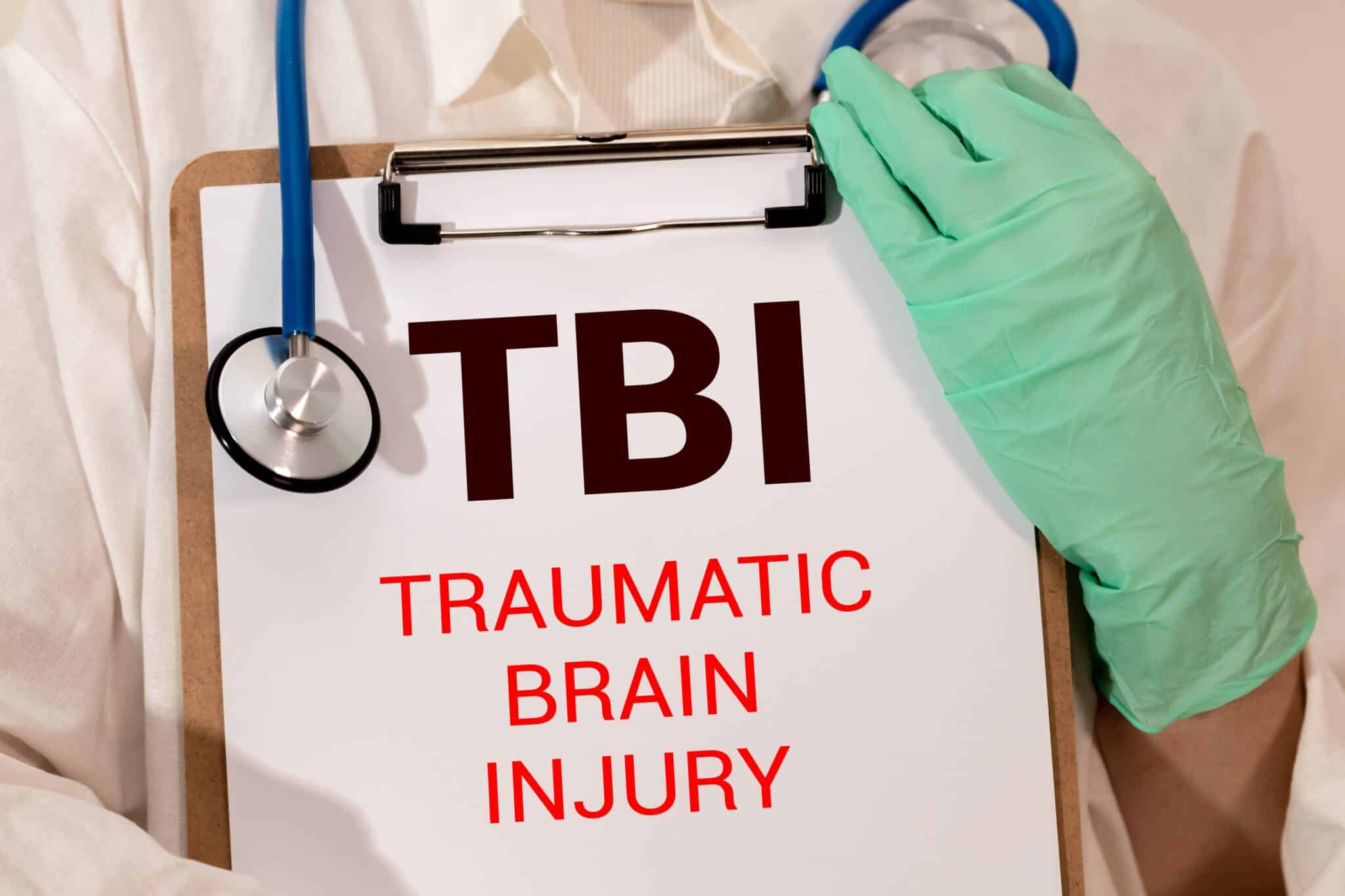
Traumatic brain injury cases stand or fall on documentation quality. According to personal injury case data, comprehensive documentation is the single most critical factor in TBI claim success, with well-documented cases settling for 340% more than poorly documented ones—directly correlating with compensation amounts ranging from $500,000 to over $3 million. Understanding how to document your tbi case is essential for maximizing your claim.
The difference between a six-figure settlement and a seven-figure recovery often comes down to one factor: the quality and completeness of your evidence. The CDC reports that 1.5 million Americans suffer traumatic brain injuries annually, yet most victims dramatically underestimate the documentation required to prove their case and secure maximum compensation.
This comprehensive guide provides an attorney-approved checklist used in cases resulting in high amount settlements. Whether your TBI resulted from a car accident, slip and fall, or workplace incident, this systematic approach ensures you preserve every piece of evidence that could strengthen your claim and increase your recovery.
Understanding Traumatic Brain Injury Documentation
Traumatic brain injury documentation serves three critical legal purposes: establishing causation, proving severity, and quantifying damages. Each element must be supported by comprehensive evidence that connects your accident to your injury, demonstrates the extent of your impairment, and calculates the full economic and non-economic impact on your life.
Learning how to document your tbi case effectively can significantly enhance your chances of a successful outcome.
Unlike visible injuries, TBIs present unique documentation challenges. Brain injuries often involve invisible symptoms—cognitive impairment, memory loss, personality changes—that require meticulous daily tracking to prove. Insurance companies routinely challenge TBI claims, arguing that symptoms are pre-existing, exaggerated, or unrelated to the accident. Your documentation must eliminate reasonable doubt about your injury’s existence, severity, and origin.
The legal standard in personal injury cases requires proving your claim by a preponderance of evidence—meaning there’s a greater than 50% likelihood your version of events is accurate. In practice, however, compensation increases dramatically when evidence is overwhelming rather than merely sufficient. According to CDC traumatic brain injury research, comprehensive medical documentation combined with consistent symptom tracking creates the foundation for successful traumatic brain injury claims.
Brain injuries fall into three severity categories, each requiring different documentation approaches. Mild TBIs (concussions) often lack visible imaging abnormalities, making symptom journals and functional impairment documentation critical. Moderate TBIs typically show some imaging evidence combined with measurable cognitive deficits. Severe TBIs involve clear imaging abnormalities, significant impairment, and extensive medical intervention. Regardless of severity, the documentation principles remain the same: comprehensive, contemporaneous, and continuous.
Critical Time-Sensitive Actions: First 72 Hours
The first 72 hours post-injury represent the most critical documentation window, as 78% of successful TBI claims include comprehensive immediate evidence. Time-sensitive actions taken in the immediate aftermath often make or break a case, as crucial evidence can be lost, destroyed, or forgotten within days.
Immediate Medical Evaluation: Your First Priority
Call 911 immediately following any head injury, even if symptoms seem minor. Emergency medical services create an official record establishing the injury date, accident circumstances, and your initial complaints. Many TBI symptoms—particularly serious ones like brain bleeding—may not manifest for hours or days. According to neurological experts at the American Association of Neurological Surgeons, delayed symptoms are common in TBI cases, making immediate evaluation critical regardless of how you feel at the scene.
Emergency room visits generate essential documentation including CT scans, medical provider observations, Glasgow Coma Scale ratings, and initial treatment plans. This becomes your baseline medical evidence proving injury occurrence and severity. Even if you initially refuse ambulance transport, visit an emergency room within 24 hours of any head impact involving loss of consciousness, confusion, or significant force.
Accident Scene Documentation
If physically able, document the accident scene thoroughly. Photograph the location from multiple angles showing hazardous conditions, vehicle damage, or environmental factors that contributed to your injury. Capture road conditions, weather factors, lighting, signage, and any property defects. Take wide shots establishing context and close-ups of specific hazards or damage.
For car accident injuries, photograph all vehicle damage, deployed airbags, broken glass, and interior damage showing impact severity. Document skid marks, debris fields, and final vehicle positions. These images prove impact force—a critical factor in establishing TBI plausibility, as insurance companies frequently argue that minor accidents cannot cause brain injuries.
Witness Information Collection
Identify and collect contact information from every potential witness immediately. Witnesses often disappear or become difficult to locate days or weeks after an accident. Record their full names, phone numbers, email addresses, and physical addresses. If witnesses are willing, ask them to provide brief written statements describing what they observed while memories are fresh.
Witness testimony proves liability and corroborates your version of events. In TBI cases, witnesses can also describe your behavior immediately after the accident—confusion, disorientation, repetitive questions, or unusual behavior—which establishes consciousness alterations that may not appear in official reports.
Police Report Obtainment
Request a police report number at the scene and obtain the full report within 72 hours. Police reports document official accident narratives, citations issued, officer observations, and initial statements from all parties. While not always admissible as evidence, police reports guide insurance investigations and establish baseline facts about accident circumstances.
Critical “Don’ts” in the First 72 Hours
Never sign insurance documents, recorded statements, or releases without attorney review. Insurance adjusters often contact victims within hours of accidents seeking recorded statements designed to minimize claim value. Politely decline and state you’ll provide information after consulting with legal counsel. Do not discuss your accident on social media—insurance companies monitor platforms for posts contradicting injury claims. Never say you feel “fine” or decline medical treatment, even if pressured by cost concerns—gaps in treatment devastate TBI claims.
Medical Documentation: The Foundation of Your TBI Case
Medical documentation constitutes 65-70% of TBI case value, with neurological testing and specialist evaluations being the most influential factors in determining compensation. The medical evidence you compile must tell a complete story: the injury occurred, it caused specific brain damage, that damage created measurable impairments, and those impairments require ongoing treatment.
Essential Medical Records to Obtain
Your medical documentation should include every healthcare interaction following your injury. Start with emergency room records and ambulance reports documenting your initial presentation, vital signs, Glasgow Coma Scale scores, and emergency provider assessments. These establish immediate post-injury status and symptom severity.
Neurologist and brain injury specialist evaluations provide expert medical opinions connecting your accident to your TBI diagnosis. These specialists conduct detailed neurological examinations, interpret imaging studies, and document cognitive deficits invisible to general practitioners. Their reports carry significant weight with insurance adjusters and juries because of their specialized expertise.
CT scans, MRIs, and all imaging studies must be obtained in their entirety—not just radiologist reports but actual images on disc. While many mild TBIs show no imaging abnormalities, obtaining negative results is equally important, as they document that proper diagnostic protocols were followed. Some brain injuries only appear on specialized imaging like diffusion tensor imaging (DTI), which may be recommended by neurologists months after initial injury.
Neuropsychological testing results provide objective measurements of cognitive function, documenting deficits in memory, processing speed, executive function, and attention. These standardized tests compare your performance to age-matched populations, quantifying impairments that might otherwise seem subjective. Baseline testing (if available from before your injury) makes these comparisons even more powerful.
Treatment plans and provider notes from every healthcare professional should be collected continuously. This includes primary care physicians, physical therapists, occupational therapists, speech therapists, psychologists, psychiatrists, and any other providers involved in your recovery. Each note documents ongoing symptoms, treatment responses, and functional limitations.
Prescription records and medication logs prove ongoing treatment needs and side effects. Many TBI patients require medications for headaches, sleep disturbances, mood disorders, or seizure prevention. These prescription histories demonstrate medical necessity and ongoing care requirements.
Hospital discharge summaries synthesize complex medical information into clear narratives describing injury severity, treatment provided, and ongoing care needs. These summaries are particularly valuable because they’re written for insurance and legal purposes, making them accessible to non-medical readers.
How to Obtain Medical Records
Request medical records from every provider using HIPAA-compliant authorization forms. Most facilities charge copying fees ranging from $0.25-$1.00 per page plus administrative fees. Request records in both paper and electronic formats, including all imaging studies on disc. Under HIPAA regulations, providers must respond within 30 days, though many respond faster.
Consider hiring a medical records retrieval service if you’re dealing with multiple providers, as these companies specialize in obtaining comprehensive documentation efficiently. Your attorney typically handles this process, ensuring all relevant records are obtained and properly organized.
Document Treatment Gaps Carefully
If financial constraints, provider availability, or other factors create gaps in your treatment, document the reasons. Insurance companies argue that treatment gaps indicate injury resolution or that the injury wasn’t serious. Counter this by maintaining written records explaining why treatment was delayed—lack of insurance, specialist waitlists, transportation challenges, or provider recommendations for treatment breaks.
For catastrophic injuries like severe TBIs, continuous treatment documentation is particularly critical as these cases often involve lifetime care needs and multi-million-dollar future medical expense claims.
Daily Impact Documentation: Building Your Life Evidence
Consistent daily symptom journaling increases TBI settlement values by an average of 45% by demonstrating ongoing functional impairment and quality of life deterioration. While medical records document clinical findings, your personal journal captures the real-world impact that medical providers rarely see—the frustration of forgotten appointments, the embarrassment of word-finding difficulties, the relationship strain from personality changes.
Creating an Effective Symptom Journal
Purchase a dedicated notebook or create a digital document specifically for symptom tracking. Make daily entries, even on “good” days, as consistent documentation proves ongoing injury impact rather than isolated bad days. Date each entry clearly and aim for entries at the same time daily to establish routine.
Track physical symptoms with specific details and severity ratings. Note headache frequency, intensity (rate 1-10), duration, and triggers. Document dizziness episodes, balance problems, vision disturbances, light sensitivity, noise sensitivity, fatigue levels, and sleep quality. Record any physical symptoms: nausea, neck pain, ringing in ears (tinnitus), or changes in taste and smell.
Document cognitive issues comprehensively. Note specific examples rather than general statements: “Forgot appointment with neurologist despite reminder on phone” is more powerful than “memory problems.” Record difficulty concentrating on tasks, confusion about familiar processes, getting lost while driving familiar routes, difficulty following conversations, and word-finding problems. Track reading comprehension issues, inability to multitask, and slowed processing speed.
Emotional and behavioral changes require careful documentation as these symptoms are often disputed. Record mood swings, irritability episodes with specific triggers, anxiety symptoms, depression indicators, crying episodes, angry outbursts, social withdrawal instances, and loss of interest in previously enjoyed activities. Note how family members react to your behavioral changes—their observations provide third-party corroboration.
Work Performance Documentation
If you’ve returned to work, meticulously document performance struggles. Save email chains showing confusion, missed deadlines, or misunderstood instructions. Request performance reviews and supervisor feedback. If you’ve required workplace accommodations—reduced hours, modified duties, extended deadlines, or memory aids—document these changes and their necessity.
Track specific work incidents: forgotten meetings, errors in previously simple tasks, difficulty learning new systems, exhaustion after partial days, or conflicts with colleagues due to irritability. If you’ve been terminated or demoted, obtain written documentation of stated reasons and your employment file.
Calculate lost wages precisely using pay stubs, tax returns from the previous three years, and employer letters confirming income and work schedule changes. For self-employed individuals, gather profit and loss statements, client contracts, and evidence of declined work or reduced business capacity.
Family Impact Statements
Ask close family members to provide written observations of changes they’ve noticed since your injury. Spouses, parents, and adult children offer valuable third-party perspectives on personality changes, cognitive decline, and functional limitations. These statements should be specific: “John used to balance our checkbook perfectly but now struggles with basic addition” or “Maria was patient with our children but now loses her temper over minor issues.”
Family statements also document the ripple effects of your injury—marital strain, parenting difficulties, lost family activities, and the burden of assuming responsibilities you can no longer handle. These impacts fall under non-economic damages and significantly increase case value.
Social Activity Documentation
Document changes in your social life, hobbies, and recreational activities. Save declined social invitations, cancelled travel plans, and abandoned hobbies. Photograph unused sports equipment, art supplies, or other items representing activities you can no longer enjoy. These demonstrate quality of life losses that comprise a significant portion of non-economic damages.
Financial Documentation for Maximum Compensation
Comprehensive financial documentation should capture both economic damages and future care costs, which can exceed $3 million over a lifetime. Every dollar of your TBI’s financial impact must be proven with documentation—speculation and estimates dramatically reduce compensation.
Medical Expense Tracking
Create a comprehensive spreadsheet logging every medical expense. Include date of service, provider name, service type, billed amount, insurance payment, and your out-of-pocket cost. Keep all original bills, receipts, insurance Explanation of Benefits (EOB) forms, and payment confirmations.
Track often-overlooked expenses: prescription co-pays, over-the-counter medications for TBI symptoms, medical equipment purchases (ergonomic chairs, special pillows, lighting modifications), travel costs to medical appointments (mileage, parking, tolls), lodging for distant specialists, and attendant care costs if family members provide assistance.
Don’t discard bills even after insurance payment. Your claim seeks reimbursement of full medical expenses (billed amounts), not just your co-pays. The collateral source rule in most jurisdictions prevents defendants from reducing damages simply because you had insurance.
Future Medical Expense Projection
Severe TBI cases require life care plans developed by certified life care planners or medical economists. These experts project lifetime medical needs including ongoing therapy, medications, medical equipment, home health care, and potential surgeries. Life care plans routinely project $3-5 million in future costs for severe TBI cases, substantially increasing settlement values.
Even moderate TBI cases benefit from future care projections. If your neurologist recommends ongoing therapy, future imaging, or long-term medications, obtain written documentation of these recommendations along with cost estimates. Document the frequency of recommended care (weekly therapy, annual imaging) and multiply by projected lifespan.
Lost Income and Earning Capacity
Calculate lost wages from injury date forward. Include missed work days, reduced hours, declined promotions, and lost bonuses or commissions. Obtain employer letters confirming your typical schedule, hourly rate or salary, and actual time missed.
For lost earning capacity claims—compensation for future income reduction—hire a vocational expert or economist. These professionals analyze your education, work history, skills, current limitations, and job market conditions to calculate how your TBI reduces lifetime earning potential. Even if you’ve returned to work, cognitive limitations may prevent future promotions, require job changes to less demanding positions, or force early retirement.
Self-employed individuals face unique challenges proving lost income. Gather tax returns, profit/loss statements, client contracts, and evidence of declined projects or clients. Document specific business opportunities lost due to injury: cancelled contracts, terminated partnerships, or failed negotiations due to cognitive impairment.
Home Modification and Equipment Costs
TBI patients often require home modifications for safety and functionality: bathroom safety equipment, ramps, specialized lighting to reduce headache triggers, organizational systems for memory impairment, or even complete accessibility renovations for severe cases. Obtain quotes from contractors and save all receipts for completed modifications.
Assistive technology costs add up quickly: smartphones with enhanced reminder systems, GPS devices for navigation difficulties, audio books for reading impairment, white noise machines for sleep disorders, or specialized computer software for cognitive support. Document necessity through provider recommendations and save all purchase records.
According to Brain Injury Association of America resources, comprehensive documentation of current and future costs typically increases settlements by 60-80% compared to cases that only claim past medical expenses.
Legal Documentation and Case Management
TBI cases require specialized legal expertise; attorneys with dedicated brain injury experience secure settlements averaging 280% higher than those negotiating directly with insurance companies. The complexity of proving invisible injuries, coordinating medical experts, developing life care plans, and countering insurance company tactics makes experienced legal representation essential.
Choosing a TBI-Specialized Attorney
Not all personal injury attorneys have TBI experience. When selecting counsel, ask specific questions: How many TBI cases have you handled? What were the settlement amounts or verdicts? Do you have established relationships with neurologists, neuropsychologists, and life care planners? Have you taken TBI cases to trial, or do you primarily settle?
Attorney specialization matters because TBI cases involve unique challenges: explaining invisible injuries to juries, countering defense medical experts who minimize symptoms, and proving causation when imaging appears normal. Experienced Florida brain injury attorneys understand these challenges and have developed strategies to overcome them.
Most personal injury attorneys work on contingency fees—typically 33-40% of recovery—meaning no upfront costs. This arrangement aligns attorney and client interests: your attorney only gets paid when you do, and higher settlements benefit both parties.
Attorney-Client Communication Records
Maintain organized records of all attorney communications. Save emails, record phone call dates and discussion topics, and keep copies of all documents provided to your attorney. This organization ensures nothing falls through the cracks and helps you stay informed about case progress.
Ask your attorney for regular status updates—monthly or quarterly depending on case stage. Understand the strategy, timeline, and any actions required from you. Good attorneys keep clients informed; if you’re not hearing from your counsel, don’t hesitate to request updates.
Critical Legal Deadlines
Florida’s statute of limitations for personal injury cases is two years from the injury date (effective March 2023, reduced from four years). Missing this deadline bars recovery regardless of case merit. However, certain exceptions apply: minors have longer filing periods, and in rare cases, the discovery rule may extend deadlines if injury was not immediately apparent.
Don’t wait until the deadline approaches to consult an attorney. TBI cases require months to properly develop—gathering records, consulting experts, documenting ongoing symptoms, and building comprehensive damages proof. Contacting an attorney within the first few months post-injury ensures adequate time for thorough case preparation.
Other critical deadlines include insurance claim reporting requirements (often 30-60 days), discovery deadlines if lawsuits are filed, and expert witness disclosure dates. Your attorney tracks these deadlines, but understanding the time-sensitive nature of legal claims emphasizes the importance of prompt action.
Expert Witness Coordination
TBI cases typically require multiple expert witnesses: neurologists to explain injury mechanism and prognosis, neuropsychologists to testify about cognitive deficits, life care planners to project future costs, vocational experts to calculate lost earning capacity, and economists to present total damages calculations.
Your attorney coordinates expert involvement, but you play a crucial role by attending all expert evaluations, providing complete information, and following expert recommendations. These experts review your complete medical records, journal entries, and other documentation—reinforcing why comprehensive documentation throughout your case is critical.
Your Complete TBI Documentation Checklist
This attorney-approved checklist has been used in cases resulting in millions TBI settlements. Organize your evidence using these categories, marking items as complete and noting any missing documentation that requires follow-up.
CRITICAL PRIORITY (Complete Immediately)
- ☐ Emergency room records from injury date
- ☐ Ambulance transport records
- ☐ Police or incident report
- ☐ Photographs of accident scene
- ☐ Photographs of injuries (visible trauma)
- ☐ Witness names and contact information
- ☐ Initial CT scan or MRI results
- ☐ Neurologist consultation notes
- ☐ Start daily symptom journal
- ☐ Consult TBI-specialized attorney
HIGH PRIORITY (Complete Within 30 Days)
- ☐ All medical records from treating providers
- ☐ All imaging studies (obtain CDs/discs)
- ☐ Neuropsychological testing results
- ☐ Prescription records and medication lists
- ☐ Physical therapy evaluation and notes
- ☐ Occupational therapy evaluation
- ☐ Work excuse notes from providers
- ☐ Employer notification of injury
- ☐ Insurance claim filed
- ☐ Medical expense tracking spreadsheet created
IMPORTANT (Ongoing Documentation)
- ☐ Daily symptom journal entries
- ☐ All follow-up appointment notes
- ☐ Specialist evaluations (ongoing)
- ☐ Treatment plan updates
- ☐ Work performance documentation
- ☐ Lost wage calculations
- ☐ Family member impact statements
- ☐ Photographs of home modifications
- ☐ Assistive device purchase receipts
- ☐ Social activity impact examples
BENEFICIAL (Strengthens Case Value)
- ☐ Pre-injury medical records (baseline comparison)
- ☐ Pre-injury employment records
- ☐ Pre-injury tax returns (3 years)
- ☐ Life care plan (severe cases)
- ☐ Vocational expert evaluation
- ☐ Economic damages calculation
- ☐ Video evidence showing functional limitations
- ☐ Second medical opinions
- ☐ Support group participation records
- ☐ Educational records showing cognitive changes
LEGAL DOCUMENTATION
- ☐ Attorney retainer agreement
- ☐ HIPAA authorization forms (signed)
- ☐ Medical record release forms
- ☐ Attorney communication log
- ☐ Insurance correspondence file
- ☐ Legal deadline calendar
- ☐ Expert witness reports
- ☐ Discovery responses (if litigation filed)
- ☐ Settlement demand documentation
- ☐ Trial preparation materials
Common Documentation Mistakes That Weaken TBI Cases
The five most common documentation errors reduce TBI case values by 40-60% on average. Understanding and avoiding these mistakes significantly improves your chances of maximum compensation.
Mistake #1: Gaps in Medical Treatment
Insurance companies argue that treatment gaps indicate your injury wasn’t serious or has resolved. If you miss appointments, delay specialist consultations, or skip recommended therapy, adjusters use this against you. Life circumstances sometimes create unavoidable gaps—loss of insurance, transportation problems, provider availability—but document the reasons in writing. A gap accompanied by a detailed explanation of financial hardship is far less damaging than an unexplained absence.
Mistake #2: Inconsistent Symptom Reporting
Telling one doctor you have daily headaches while telling another you have occasional discomfort creates credibility problems. Insurance companies scrutinize medical records for inconsistencies to argue you’re exaggerating symptoms. Be honest and consistent with all providers. If symptoms vary, explain the variability: “Headaches occur daily, ranging from 3/10 on good days to 9/10 three times weekly.”
Mistake #3: Social Media Activity
Insurance companies hire investigators to monitor social media for posts contradicting injury claims. A single photograph of you smiling at a family gathering can be misrepresented as proof you’re not seriously injured, even though the photo captures one good moment in an otherwise difficult week. The safest approach: avoid social media entirely during your case, or at minimum, set all accounts to private and never post about activities, injuries, or legal matters.
Mistake #4: Missing Financial Records
You cannot recover compensation for expenses you cannot prove. Discarded receipts, lost bills, and incomplete expense logs cost claimants thousands or even hundreds of thousands in lost compensation. Create a dedicated file folder or digital folder for all TBI-related financial documents from day one. If you’ve already lost documentation, immediately request duplicate bills from providers and credit card statements showing medical payments.
Mistake #5: Delayed Legal Consultation
Many TBI victims wait months or even years to consult an attorney, believing they should try to “handle it themselves” or that their case will be simple. By the time they seek legal help, critical evidence has been lost, witnesses have become unreachable, and insurance companies have established positions that are difficult to overcome. Early legal consultation doesn’t commit you to litigation—it ensures your rights are protected and evidence is preserved while you focus on recovery.
For more resources on avoiding these mistakes, visit the CHG Lawyers blog for detailed guides on personal injury case management.
Frequently Asked Questions: TBI Case Documentation
What documents do I need to prove a traumatic brain injury claim?
Essential TBI claim documents include emergency room records, neurological evaluations, CT/MRI imaging results, neuropsychological testing, treatment records from all providers, prescription logs, daily symptom journals, work performance documentation, and financial records showing medical expenses and lost wages. Medical documentation should span from the accident date through current treatment and include specialist evaluations from neurologists or brain injury specialists.
According to legal standards, comprehensive medical documentation establishes both causation and severity, which are critical for maximizing compensation in TBI cases. The most successful claims include continuous documentation demonstrating ongoing injury impact rather than isolated medical visits.
How long do I have to file a traumatic brain injury lawsuit in Florida?
In Florida, the statute of limitations for personal injury cases, including TBI claims, is two years from the date of injury (effective March 2023, reduced from four years). However, certain exceptions may apply, such as cases involving minors or delayed discovery of injury. Missing this deadline typically bars you from recovering compensation regardless of case merit. Given the complexity of TBI cases and the time required to gather comprehensive medical documentation, consulting a specialized brain injury attorney within the first few months post-injury is critical to protect your legal rights and ensure proper evidence preservation.
Cases filed close to the deadline often suffer from inadequate documentation and rushed preparation that reduce settlement values.
What is the average settlement for a traumatic brain injury case?
TBI settlements vary significantly based on injury severity and documentation quality. Mild TBI (concussion) cases typically settle for $100,000-$500,000, moderate TBI cases range from $500,000-$2 million, and severe TBI cases involving permanent disability often exceed $3 million and can reach $10 million or more. Key factors affecting settlement value include documented medical expenses, lost earning capacity, degree of permanent impairment, quality of life impact, and liability strength.
Well-documented cases with comprehensive medical evidence, expert testimony, and clear causation documentation settle for 340% more on average than poorly documented cases. Future care costs for severe TBI can exceed $3 million over a victim’s lifetime, making life care plan documentation essential for maximum compensation.
Should I keep a daily journal after my brain injury, and what should I include?
Yes, maintaining a daily symptom journal is critical and can increase settlement value by up to 45%. Document physical symptoms (headaches, dizziness, fatigue) with severity ratings 1-10, cognitive issues (memory problems, confusion, concentration difficulties), emotional changes (irritability, depression, anxiety), sleep disturbances, and specific impacts on daily activities. Include examples of tasks you can no longer perform, work difficulties, relationship impacts, and any incidents showing functional impairment.
Write entries even on “good” days to demonstrate consistency. Journal entries serve as contemporaneous evidence of ongoing injury impact and help medical providers understand symptom patterns, making them highly persuasive in settlement negotiations or trial. Include dates, times, and specific examples rather than general statements for maximum evidentiary value.
Can I handle my TBI case without hiring an attorney?
While legally possible, handling a TBI case without an attorney is strongly discouraged. Studies show that TBI victims represented by specialized brain injury attorneys receive settlements averaging 280% higher than those who negotiate directly with insurance companies. TBI cases require complex medical evidence, expert witness testimony, life care plan development, and understanding of nuanced brain injury litigation. Insurance companies employ experienced adjusters and attorneys who routinely undervalue claims, particularly invisible injuries like TBIs.
Additionally, attorneys handle cases on contingency (no upfront costs), meaning they only get paid if you win. Without legal representation, you risk accepting inadequate settlements that fail to cover long-term care needs, future lost earnings, and lifetime medical expenses that can exceed $3 million in severe cases.
Why Choose Cornish Hernandez Gonzalez?
Experience with Catastrophic Injuries
We’ve handled hundreds of serious injury cases in Miami. We understand the unique challenges of catastrophic injuries.
Resources for Complex Cases
Catastrophic Injury cases require significant resources. We have:
- Relationships with top medical experts
- Financial resources for lengthy litigation
- Technology for case presentation
- Support staff for detailed case management
Proven Results
We’ve recovered millions for Miami catastrophic injury victims. Our track record speaks for itself.
Personal Attention
We limit our caseload to provide personal attention. You’ll work directly with experienced attorneys, not junior staff.
Spanish-Speaking Team
Miami’s diverse community deserves legal representation in their preferred language. Hablamos español.
Don’t Wait – Your Future Depends on Action
Catastrophic Injuries change everything. The medical bills pile up quickly. The pain never seems to end. Simple tasks become impossible. Your family suffers watching you struggle.
But you don’t have to face this alone. Legal help is available, and time is running out.
Florida law gives you a limited time to file a claim. Evidence disappears. Witnesses forget. Insurance companies use delays against you.
The sooner you call, the stronger your case becomes.
Contact Cornish Hernandez Gonzalez Today
If you or someone you love suffered catastrophic injuries in Miami, we’re here to help. Our experienced burn injury lawyers will fight for the compensation you deserve.
Your consultation is completely free. We don’t get paid unless we win your case.
We Serve All of Miami-Dade County:
- Downtown Miami
- Coral Gables
- Aventura
- Kendall
- Homestead
- Hialeah
- Doral
- Pinecrest
Don’t let insurance companies take advantage of you during this difficult time. Call Cornish Hernandez Gonzalez today. Your recovery starts with a phone call.
Hablamos español.
Remember: You have limited time to protect your rights. Don’t wait – call today.
Call (305) 745-7035 now for a free, no-obligation consultation.
This article is provided for informational purposes and does not constitute legal advice. Every TBI case is unique, and outcomes depend on specific facts and circumstances. For personalized legal guidance on your traumatic brain injury claim, consult with a qualified personal injury attorney in your jurisdiction.




